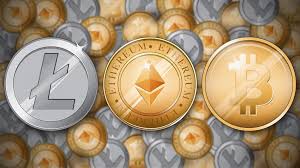WHAT IS CRYPTOCURRENCY?
.jpg) A cryptocurrency is a form of digital asset, created through a canny combination of encryption and peer-to-peer networking.
A cryptocurrency is a form of digital asset, created through a canny combination of encryption and peer-to-peer networking.
BITCOIN, the first and biggest cryptocurrency, is part of a decentralised payment network. If you own a bitcoin, you control a secret digital key which you can use to prove to anyone on the network that a certain amount of bitcoin is yours.
If you spend that bitcoin, you tell the entire network that you've transferred ownership of it, and use the same key to prove that you're telling the truth. Over time, the history of all those transactions becomes a lasting record of who owns what: that record is called the blockchain.
After bitcoin's creation in 2009, a number of other cryptocurrencies sought to replicate its success but taking its free, public code and tweaking it for different purposes.
Some, such as Filecoin, have a very defined goal. It aims to produce a sort of decentralised file storage system: as well as simply telling the network that you have some Filecoins, you can tell the network to store some encrypted data and pay Filecoins to whoever stores it on their computer.
Others are more nebulous. Ethereum, using the Ether token, is now the second biggest cryptocurrency after bitcoin and essentially a cryptocurrency for making cryptocurrencies. Users can write "smart contracts", which are effectively programs that can be run on the computer of any user of the network if they're paid enough Ether.
Of course, to many, the purpose is secondary. The only really important thing is that the value of an Ether token increased 2,500% over 2017, meaning some are hoping to jump on the bandwagon and get rich. Bubble or boom? That's the $28bn question.